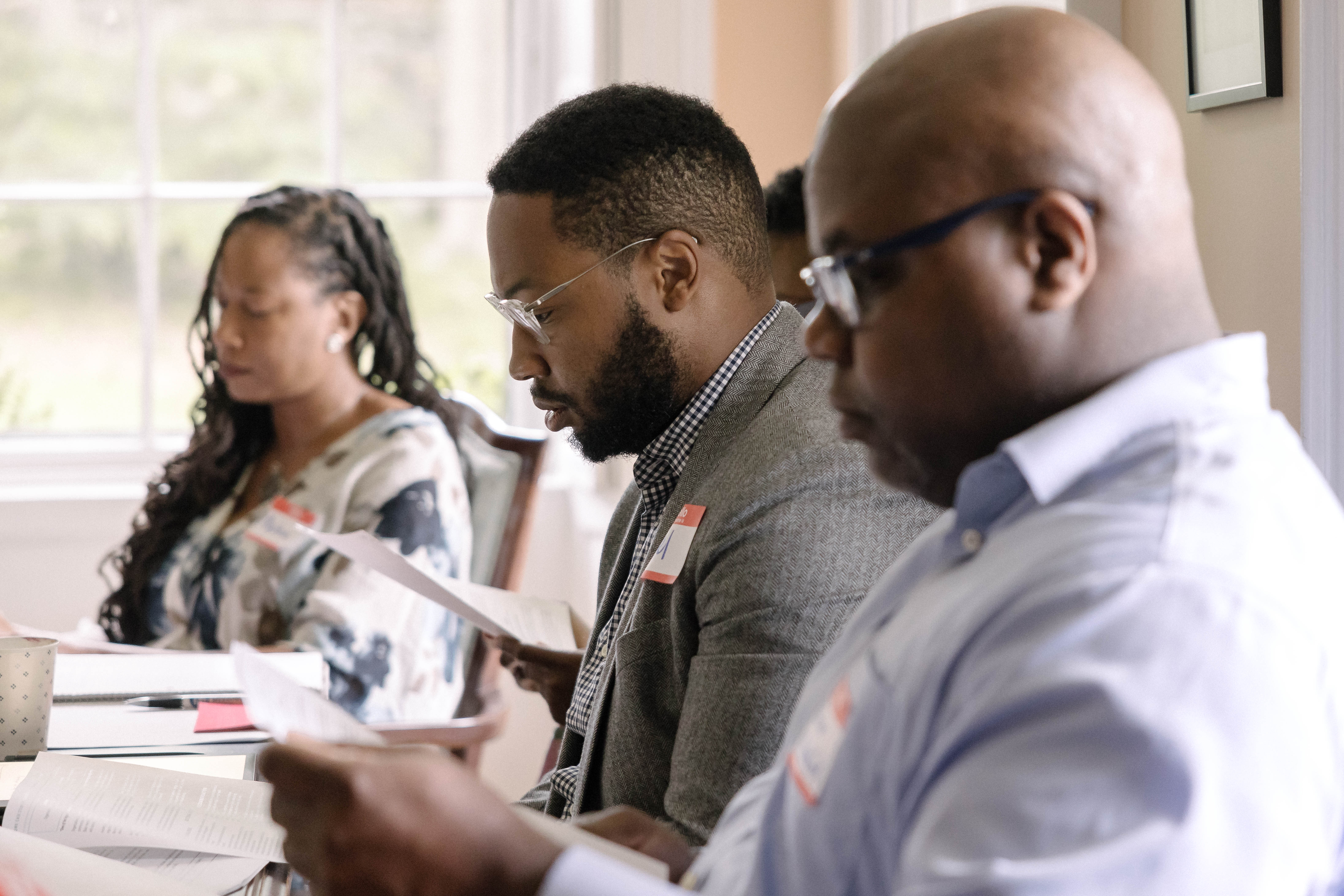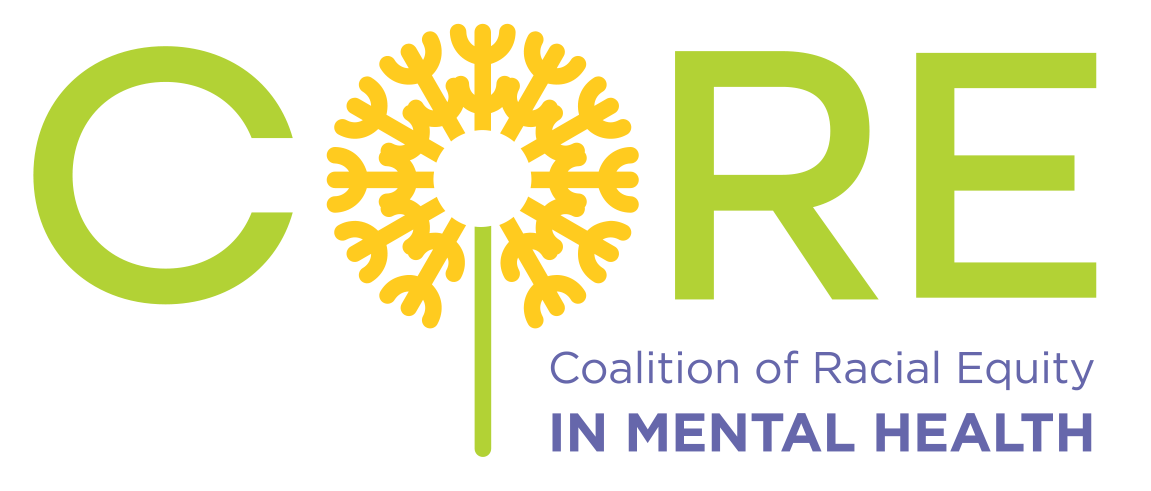Core Mental Health sponsors learning and networking around our priority areas – mental health, and racial equity. We provide workshops, case studies as well as a newsletter with additional resources.

CORE offers several workshops to institutions, tailoring our content to the needs of each group. Facilitators are indicated for each workshop, and are subject to change depending on availability and scheduling.
Workshops can accommodate up to 30 people. Suggested audience familiarity of racial equity work is indicated for each workshop as: 1. new to this 2. done some learning 3. been at this for a while
Contact director@core-mental-health for the detailed training packet and fee information. Note, we offer sliding scale rates to make our content as widely available as possible.
Cultural Humility (3 hours)
CORE was fortunate to be the last group to receive a training of trainers by Dr. Melanie Tervalon, one of the two founders of the Cultural Humility concept and CORE is one of a very few organizations offering this training in Massachusetts.
A cultural humility approach involves active, ongoing individual and institutional engagement with individuals and defined populations on the content and meaning of culture, power, privilege and difference. In this workshop, we offer an introduction to the basic principles and practices of cultural humility: critical self-reflection and lifelong learning; recognition and mitigation of inherent power imbalances; seeking and honoring the expertise that resides in the communities we serve in non-paternalistic, mutually beneficial partnerships; and institutional accountability and alignment. We engage participants in discussion and debate about the difference between cultural competence and cultural humility and how to practice the cultural humility principle of “client as an expert” in interactions. Participation in a follow up accountability session is required. Facilitators Jamila Xible (Cambridge Health Alliance) and Stacy Carruth-Sesia, CORE Planning Director. Audience: new to this, done some learning
Racial Justice 101 (three 2-hour sessions)
Racial Justice 101 is a 3-part series which introduces participants to concrete tools and resources to implement racial equity strategies into one’s organization. Content includes the impact of racism in this country and identifying opportunities to disrupt white supremacy culture. The training will include developing shared language, reviewing and analyzing data by race, and learning teaching practices and tools. Participation in a follow up accountability session is required. Facilitators Jill Harvey, Diversity, Equity and Inclusion Director for Arlington, MA and Dana Rochman, Clinical Social Worker/Therapist. Audience: new to this, done some learning
Racism and Mental Health: Exploring Local Findings (3 hours)
In the Spring of 2017, CORE interviewed Black/African American residents and service providers in Arlington, Belmont, Cambridge, Somerville, Watertown and Waltham about mental health and racism. Our intention was to respond to the gap in research on specific barriers to services for African Americans. We interviewed 38 African American/Black residents and 39 service providers.
Findings have been shared with students at local universities (Tufts Medical School, Boston College, etc) and with 147 residents and providers in all 6 communities through community dialogues, several co-facilitated by Dr. Kwame Dance. Facilitators are Dr. Kwame Dance and CORE Planning Director, Stacy Carruth-Sesia. Audience: new to this, done some learning
Equity Conversations (1 hour/week for 6 weeks)
The purpose of this series is to investigate conditions that impact racial equity and cultivate strategies for change. Each week we explore one theme: inheritance, pervasive systems, stories and lived experience + bridges for communication and understanding, engaged activism, collective liberation. These themes are foundational to everything we do and who we are at CORE (and part of the CORE racial equity statement). Facilitators are Darrell Hyche, CORE Fellow, Leslie University (social work), Betty Burkes, CORE chair, and Stacy Carruth-Sesia, CORE Planning Director. Audience: done some learning, been at this for a while.
Core Committee Meetings
Steering Committee Meetings
Steering Committee meetings are open to the public.
They are generally held on first Tuesday of month from 10:00am-12:30pm (October, December, February, April, May). Email director@core-mental-health.org for more information and/or to participate.
Event Planning Committee
Work Description: This group helps to shape all convenings (meaning trainings and community forums). Community forum topics will include: scholarship recipients presenting on what they’ve learned, sexual harassment, and hate incident/bullying. Members: Katie Teague, Shameka Gregory, Stacy Carruth-Sesia. Email director@core-mental-health.org to participate.
Sustainability Subcommittee
Work Description: This committee is dedicated to strengthening the organizational and financial sustainabililty of CORE. We recently started using a tool from Engine of Success, to analyze our sustainability. This group also helps identify funding sources, and helps write grants. Members: Mary DeCourcey, Colleen Leger, Takia Myers, Pietra Check, Betty Burkes, Stacy Carruth-Sesia. Email director@core-mental-health.org to participate.
Finance Subcommittee
Work Description: This committee is broad oversight of the CORE finances and meets monthly to review the profit and loss statement, discuss modifications to spending and report back to the steering committee. Members: Monica Luke, Jill Harvey, Shameka Gregory, Stacy Carruth-Sesia. Email director@core-mental-health.org to participate.
Past Trainings and Community Forums
Our convenings over the past years have included:
- October 2021 Training on Education and Trauma with Citizens for Juvenile Justice / Training slide deck
- August 2017 Learning Community Organizational Self Assessment Racial Equity
- February 2018 Learning Community Organizational Self Assessment Racial Equity
- Cambridge Speaks: Exploring Local Findings on Mental Health and Racial Equity
- FAQ from Dialogues: Exploring Local Findings on Mental Health and Racial Equity
- Structural Inequities, An On The Ground View
- Racial Disparities in Mental Health
- The Why and How of Affinity Groups
- Leading with Racial Justice – Integrating Equity Into Your Work
- Trauma and Impact of Historical Trauma on African Americans Today / Overview of Mount Auburn Community Health Initiative
- Crafting a Hiring Process to Address Implicit Bias / Diversifying your Board
- CORE Showcase of Funded Projects
- Framing for Racial Equity
- Implicit Bias
- Racism and Health
The information contained in this training is for general information purposes only. The training is sponsored by CORE and we strive to offer trainings that align with our mission and our health priority areas. Additionally, the CORE steering committee regularly conducts votes to decide on which trainings to offer. While we endeavor to ensure the quality, suitability and accuracy of the content provided in each training, participants join at their own risk and assume responsibility for their participation.

